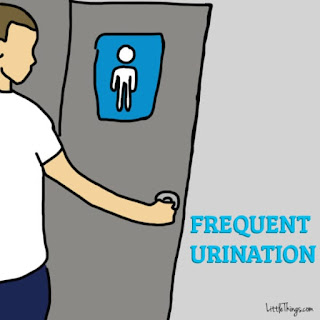Just like paying attention for symptoms of cancer, looking out for the signs of pre-diabetes or full-blown diabetes is absolutely crucial.
With type 2 diabetes, quite often the symptoms can be very mild, meaning that they go unnoticed for a long time while the disease wreaks havoc on your body. And with type 1 diabetes, the symptoms are often very severe and can come on quite quickly.
In any case, knowing when something is wrong with your body, and when it might be a sign of diabetes, is critically important to getting the proper medical care as soon as possible.Prompt diagnosis of diabetes can help enormously with treatment. And spotting diabetes right before it starts can help you avoid the full-blown disease altogether!
While losing weight might sound positive, unexplained weight loss of 10 or more pounds in a short period of time could be a sign of something wrong with your body. Dr. Andrew Bremer of the National Institute of Diabetes and Digestive and Kidney Diseases says, “I’d be concerned if you’re eating more and losing weight.”
When your blood sugar levels are high due to diabetes, your body’s cells aren’t getting glucose. Then the body starts breaking down your muscles as a substitute form of energy. This can also make the kidneys work overtime, causing long-term damage.
Whether it is a direct result of diabetes or not, always see a doctor if you experience unexplained weight loss.
One of the common symptoms of diabetes is having blurred vision or seeing floaters on the eyeball. Dr. Collazo-Clavell writes, “Blurry vision is a refraction problem. When the glucose in the blood is high, it changes the shape of the lens and the eye.”
This blurry vision is an early warning sign of type 2 diabetes. Don’t just assume your distorted vision is normal. Especially if it is coupled with any of these other symptoms, you should definitely see your doctor about it.
When your body is dealing with diabetes, it will quite often take much longer for sores or cuts to heal. WebMD writes, “Over time, high blood sugar can affect your blood flow and cause nerve damage that makes it hard for your body to heal wounds.”
The lack of blood flow to specific areas that need healing will prevent the process from occurring at a normal, rapid speed. Slow-healing sores or cuts are definitely a red flag that you may need to visit your doctor regarding diabetes.
Another strange but common symptom of diabetes is an unexplained and persistent increase in appetite. Dr. Fernando Ovalle says, “Insulin doesn’t work well for some reason in muscle, fat, and other tissues, so your pancreas starts to put out a lot more. This results in high insulin levels in the body. That insulin level makes the brain feel hungry and makes you hungry.”
Of course, hunger by itself isn’t always a cause for worry. But an increased hunger, when accompanied by unexplained weight loss or others of these symptoms, should be cause enough to see a doctor.
Similar to the increased hunger, fatigue may be a result of diabetes as well. WebMD writes, “If your body doesn’t make enough or any insulin…you have no energy.” This can make you more “tired than usual.”
Fatigue is one of those symptoms that could have a lot of causes besides diabetes, like cancer, hypothyroidism, anemia, or even depression. Regardless, persistent or chronic fatigue should definitely be a sign that you need to visit your doctor to have things checked out.
Numbness or pain in the feet can just be a result of poor circulation, but it is also one of the symptoms of diabetes. Dr. Ovalle says that it “usually starts in the feet and then it progresses upward.”
The numbness can be the result of nerve damage caused by diabetes. This particular symptom is most likely in people who have had diabetes for awhile, but it can occur with pre-diabetes as well. Regardless, numbness in the extremities is never a good sign, and you should always seek out a doctor’s opinion.
Frequent urination is one of the more common symptoms associated with diabetes. Dr. Bremer says, “If 4 months ago you were getting up once in the middle of the night to pee and now you’re getting up three times, that’s a clue you need to get checked out.”
When diabetes causes an increase in blood sugar, your body may try to create extra urine to get rid of it. This causes you to need to urinate much more than the average person. If you are experiencing frequent urination, you should definitely talk to your doctor, as it can have several negative effects on your body.
Please share and save a friend
Source : healthy panda







No comments:
Post a Comment